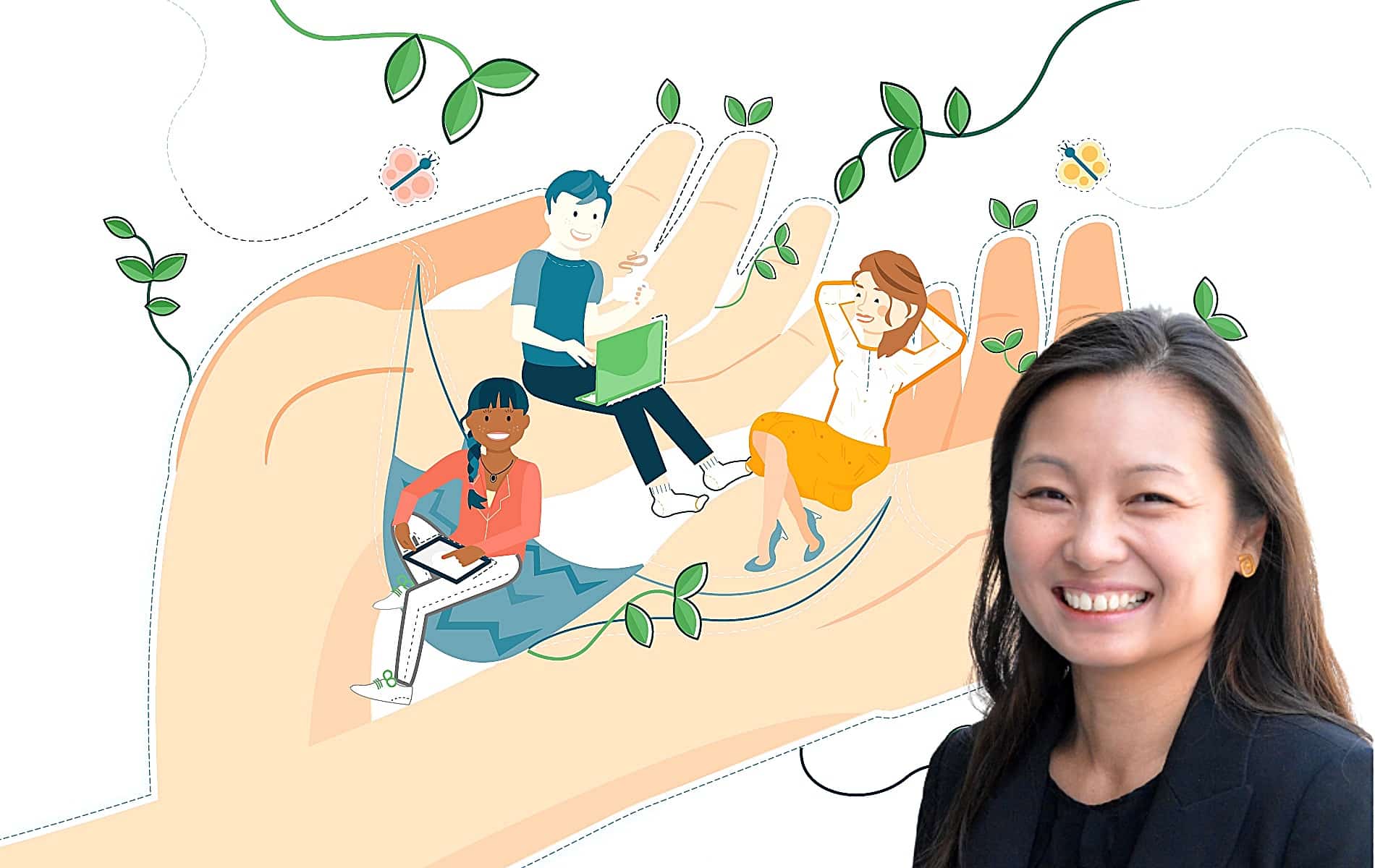Faculty Feature: Implementing inclusive practices in workplaces is crucial to the well-being of immigrants
Professor Soo Min Toh on the reshaping of the behaviour of immigrants in a new work environment.
Professor Soo Min Toh is a renowned researcher and educator in the Department of Management at the University of Toronto Mississauga (UTM). Professor Toh’s work merges the world of human resource management with the psychology of behaviour.
Professor Toh’s studies aim to recognize and address cultural, socioeconomic, and psychological obstacles that exist between newly-immigrated employees and domestic employees in multinational corporations. Coming from Singapore, where these matters were rarely discussed and often stigmatized, she is grateful for UTM’s acceptance of her research, especially in her involvement in the inclusion of minority groups.
In Singapore, Professor Toh noticed the difference in the behaviour of local employees towards immigrant employees. She observed that Singaporean multinational corporations were less concerned with expanding the current skills of local employees. Instead, they focused on drawing overseas talent. “Local employees are overlooked in favor of expats [and] immigrant employees,” she explains.
Towards the end of her undergraduate degree at Nanyang Technological University, Professor Toh considered working for multinational corporations in Singapore. However, when her supervisor suggested that she would gain more from pursuing further studies and research rather than by working in global firms, Professor Toh realized that her passion lied in academia. “I was more introspective and tended to think about why we do what we do which made me most curious during my undergraduate degree. I was interested in the human aspect of [an] organization, not so much the business itself,” she shares.
As a result, she pursued her PhD at Texas A&M University. During this time, she focused her efforts on understanding the behaviour of specific groups of people entering the workforce. She studied immigrants, a group often underrepresented in the field of organizational behaviour. “As I was thinking about what excites me the most during my doctoral studies, I ended up drawing from my personal experience. Working as a Singaporean in Singapore in a multinational organization got me interested in the idea that organizations are overlooking the way local employees are perceiving expats [and] immigrants,” she shares.
Professor Toh’s work has not only revealed the unfair treatment that immigrants face in new workplaces, but also the long-term effects of such working environments. Her studies acknowledge the importance of treating all employees fairly, regardless of where they come from, while highlighting the dire psychological consequences of unequal, unjust treatment. “It is important for voices to be heard, especially the voices of the minority. Often, ignorance about the interactions between the domestic and immigrant employee leads to mental health issues that stop the incoming immigrant worker from reaching their potential,” she explains.
Professor Toh seeks to shed light on how locals perceive immigrants in organizational settings. Currently, her research addresses the mental health issues employees face in the workplace. She studies and proposes how immigrants can meet workforce demands and integrate easily into their new surroundings while fostering personal growth. Professor Toh hopes to achieve a more inclusive society where “people can [be] fulfilled and be recognized for their strengths and potential, their unique capabilities they bring to the organizations, and respond positively.”
The ideal atmosphere in organizational settings can only be achieved through a partnership between the local workforce and arriving immigrants. To accomplish this, Professor Toh explains that we need to foster an environment in which neither group is shunned aside for the gain of the other. Her research highlights that this can only succeed if workplaces have more open discussions between the two groups and accept recommendations on how to overcome cultural and social barriers. In order to reshape the behaviour in organizations, she adds that “it is important to have inclusivity in the workplace now.” As a solution, Professor Toh explains that employees should be taught how to avoid potential segregation through workshops and seminars. She notes that organizations should also commit to providing the benefits that immigrants enjoy to all employees—equal benefits are a must.
By incorporating inclusive practices in the workplace, we can help protect the well-being of immigrant employees. However, Professor Toh acknowledges that post-pandemic, new approaches to preventing discrimination might be required. She explains that with most workplaces now returning to in-person activities, “it is very difficult to predict the change in organizational behaviour.” In particular, it is even harder for immigrant employees to recuperate from its effects. She notes that trying to redress these issues is essential for the world to hold smoother discussions about the integration of inclusivity in organizations.
Currently, Professor Toh’s research is funded by the Tamarack Institute. She is undertaking a community-based research project to examine family focus groups to better teach agencies “how to continue to foster the growth of incoming immigrants.” She hopes to understand how employees who immigrate with their families approach new work environments.
In 2021, Canada housed over 400,000 skilled immigrants. In fact, according to Immigration, Refugees, and Citizenship Canada, Canada’s labour force growth is 100 per cent attributed to immigration. As such, fostering a positive workplace environment conducive to the development and well-being of immigrants is essential. For Professor Toh, educating today’s workforce about the relevance of organizational behaviour and incorporating inclusive practices is key to advancing the success of immigrants in the workplace.

